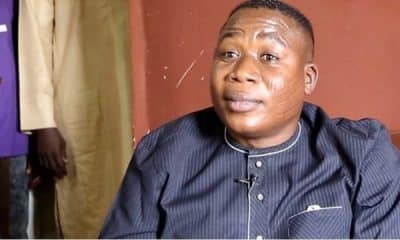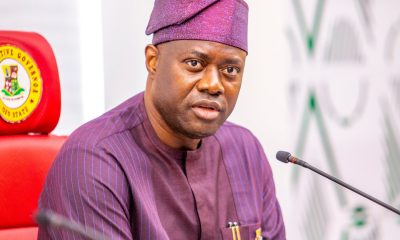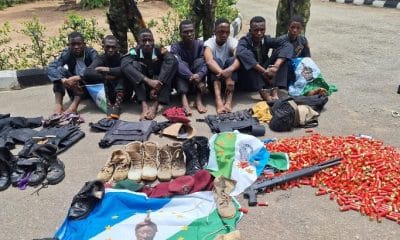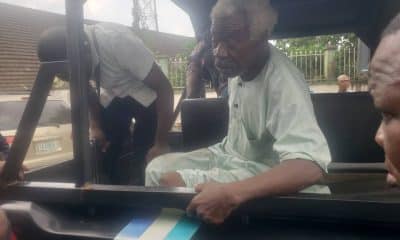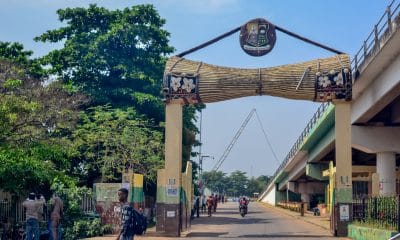Nigeria News
Yoruba Nation: ECOWAS Court Dismiss Suit By Agitators
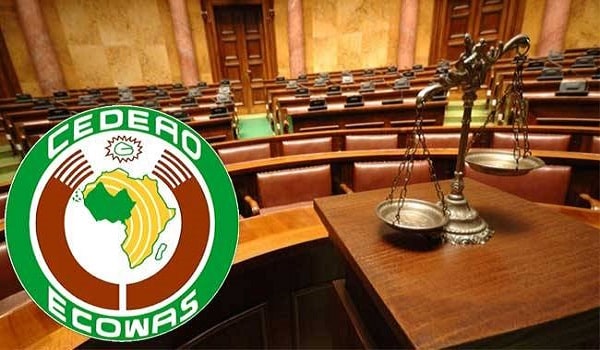
A suit filed by four Yoruba Nation agitators seeking self-determination for the Yoruba people of Nigeria has been dismissed by the ECOWAS Court of Justice.
Naija News understands that a three-member panel of the court in its judgement held that the four individuals identified as Risqat Badmus, Ademola Faleti, Yemisi Fadahunsi-Ogunlana and Adigun Makanjuola lacked the necessary capacity to sue for themselves and on behalf of the Yoruba nation.
In the lead judgment, Justice Dupe Atoki, according to a statement by the court’s media unit, held that the applicants as individuals failed to prove their ability to act as bearers of the right to self-determination ascribed to Yoruba people.
In the March 13 judgement of the ECOWAS court, Justice Atoki held that based on the definition of the African Commission of the concept of a people as a group of persons “bound together by their historical, traditional, racial, ethnic, cultural, linguistic, religious, ideological, geographical, economic identities and affinities.”
The judge, therefore, said the four applicants did not qualify to be the bearers or holders of such rights and declared that they did not have the capacity to sue the Respondent State for themselves.
This online news platform gathered that the applicants who are all members of the Coalition of Yoruba Interest Group (CYIG) dragged the Federal Republic of Nigeria to court, seeking a declaration to activate their rights to self-determination, as provided for under Article 20 of the African Charter on Human and Peoples Rights and Articles 3, 4, 7 and 18 of the United Nations Declaration on the rights of the Indigenous People.
They prayed to the court to determine if the Nigerian Constitution of 1999 was still operable following the deadline they gave the Federal Government in the Constitutional Force Majeure proclamation.
The applicants urged the court to determine if the new legislation, laws, directives, and decrees were still operational within their (applicants’) territories since the expiration of the proclamation.
They also pleaded to the court to determine the possibility of self-determination for the territories in Yoruba land.
They argued that Nigeria was constituted in 1914 by the British Government without taking into account the social, cultural, religious and ethnic configurations of the country.
On the alternative, the applicants urged the court to order the Nigerian government to organise a referendum, giving the opportunity to the applicants’ land to exit the respondent’s territory.
The respondent also argued that the case has nothing to do with human rights violations but an attempt to upturn the country’s Constitution, which is not within the jurisdiction of the court.
However, the federal government in its counterargument said the applicants sought to threaten the sovereignty and autonomy of the country and were invoking “the jurisdiction of this Honourable Court to determine the validity of the Constitution of the Federal Republic of Nigeria, 1999.”
The federal government further argued that the applicants did not have the authority to determine the efficacy of the Constitution of the Federal Republic of Nigeria because it’s operating a federal system and observes the rule of law.
The federal government is is the respondent in the suit pleaded for the court to dismiss the case while emphasising that Nigeria gained independence as a unified and indivisible state in 1960, which the ECOWAS Court of Justice has no power to dissolve, and also the applicants’ pleas were based on individual opinions, speculations and insinuations.
Justice Atoki after hearing argument from both sides then held that the applicants failed to exhibit their capacity to represent the Yoruba for whom the action was instituted, adding that in cases of the right to self-determination, “a representative action is the appropriate and indeed the most practicable option in seeking relief for violation of this right.”
According to her, no such evidence of authority given by the Yoruba nation was provided by the applicants.
She subsequently declared the application inadmissible.
Others members of the panel are Justices Edward Amoako Asante (presiding) and Gberi-Bè Ouattara.

